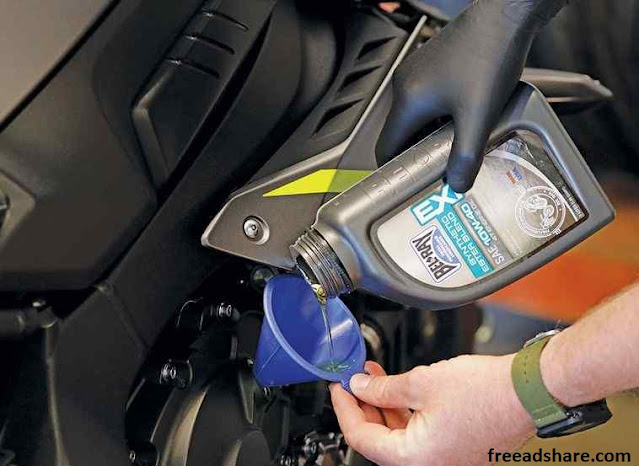Picking the correct oil during an oil change is essential.
Ignoring the manner in which this may sound overwhelming to most, it’s really
an extremely fundamental thing to get right.
We as a whole in all spend a little fortune on our cars as
it’s tremendous, and increasingly moderate over the long haul, to take mind
boggling thought of the engine over its lifetime. Close to standard adjusting,
another immense factor is picking the correct oil during an oil change.
As oil may be, reasonably, the soul of the engine you should
take the astonishing idea to utilize just the suggested thing for your metallic
pride and satisfaction. Pardoning this reality will cost you over the long haul
as your engine impulsively bites the dust or, may we set out to state, flop
astoundingly.
Taking into account that picking the correct oil during an
oil change may radiate an impression of being a stunning undertaking. Rest
guaranteed it isn’t so hard to get right don’t either free for all. Normally
utilizing an off-base oil, in any case, could display destructive for your dear
vehicle.
Engine Oil: What is it for?
20W50 Engine oil performs particular important
undertakings inside your engine. Afterall, for what other clarification would
you have to utilize it in any case?
Engine oil, if all else fails, plays out the going with
limits:-
It frustrates/lessens crumbling by going about as a
lubricant,
It goes about as a gleam direct by diverting warmth away from
the beginning cycle. This is really a trademark delayed consequence of going
about as a lubricant and is staggeringly critical for most engines particularly
turbo-engines for instance,
It goes about as a magnet for expending side effects, and;
It limits oxidation therefore diminishing engine breaking
down after some time.
What may it be a keen idea for you to search for in an engine
oil?
When picking another engine oil you should search for the
going with.
Check the Oil’s Viscosity Rating
Oils you’ll discover on the racks today are everything viewed
as what are named Multigrade. These were made around 50 years going before
discard the old need to change among dynamically thin and thicker oils in the
winter and summer.
This proposes oils before long fall between two thickness
grades, utilizing framed as something like 10W-40, and so on. The W part of the
code infers the winter, or logically thin, the consistency of the oil – the W
addresses winter out of the blue.
The lower the W thickness the better the oil demonstrations
in colder temperatures.
recommends the oil’s presentation at 100 degrees centigrade. Again the lower
this number the more thin the oil and the opposite path around.
What are the responses of utilizing an inappropriate oil?
As we’ve seen engine oil performs various important
assignments so placing a boorish oil in your engine during an oil change could
spell catastrophe.
These are some customary appearances of utilizing an off-base
oil (this is a long way from complete obviously).
You Might Start to Get Oil Leaks
You may find that while changing among customary and made
oil, even with a similar consistency degree, during an oil change you begin to
get oil spills. This is on the grounds that delivered oil has an other stream
trademark to standard and can ‘spill out’ of more minute spaces than standard
oil.
Diminished Mileage
Utilizing an off-base engine oil consistency, particularly if
thicker than suggested, will unmistakably affect your vehicle’s mileage. This
is considering the way that principal moving parts, similar to chambers, move
less direct.
This consolidates a stack onto the engine and thusly
decreases the vehicle’s general eco-invitingness.
Your Engine Might Become Noisy
Dynamically settled engines could wind up being indisputably
noisier while exchanging among standard and engineered oil. This is considering
the way that, similar to oil releases, the separation in stream attributes
deduces 5W30 Engine Oil
sneaks past openings
more effectively than standard oil.
This could gather that the oil ‘sneaks past’ engine
clearances considerably more effectively when showed up contrastingly
corresponding to progressively settled standard oil.
Your Car Might Not Start in Cold Weather
By and large, if your oil change accomplishes a lower cold or
winter thickness than suggested being utilized, you may discover your vehicle
won’t start in the underlying portion of the day in freezing show.
This is, obviously, fabulously gawky and perhaps unsafe in a
crisis.
You should attempt to pick an oil with the most insignificant
contamination rating conceivable and with the most invulnerable extent of
thickness for anticipated temperatures.
At whatever point in helplessness counsel your vehicle client
manual.
You Might Start Burning Oil and Damaging Your Engine
In the event that, during the oil change, too high a ‘hot’
thickness is utilized it can accomplish certain issues. For example, when
you’ve begun the vehicle the oil will start to lose its durable quality and
won’t have the decision to oil up exactly as expected.



